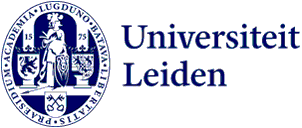
LeidenGlobal seminar series on interdisciplinarity offers a “license to creativity”
In September, the LeidenGobal seminar series ‘Beyond Discipline and Place in the Social Science and Humanities’ will kick off. The series, targeted at PhD’s and Research MA students, engages with the question what it means to be an interdisciplinary researcher. “These seminars can help you define your identity as a researcher”, says coordinator Noa Schonmann.
Interdisciplinary collaboration is increasingly encouraged within academic circles and by funders, the main reason being that solving complex world problems requires collaboration between different scientific disciplines. But can interdisciplinarity deliver on that promise? And what resources do researchers need to be able to cross disciplinary boundaries? The LeidenGlobal seminar series ‘Beyond Discipline and Place in the Social Sciences and Humanities’, targeted at PhD’s and Research MA students, focuses on these questions. “This series primarily allows novice researchers to get a sense of what it means to conduct independent research projects and to develop critical thinking in relation to their scientific discipline. It will help them to move on from student to researcher”, says Noa Schonmann, Assistant Professor and convener of the series. Here’s what participants can expect.
Reflect on your own research interactively
The seminar series will be interactive. Schonmann: “There are eight invited speakers who will talk about their experiences in research and views on interdisciplinary work. But after a 30 minute presentation, sessions will turn into a conversation, with students asking questions and thinking together how insights from the presentation apply to their projects. . Three sessions will be run as a workshop, offering students the opportunity to creatively consider the disciplinarity of their emerging research projects, Ultimately, the goal is for all students to think critically about how they position themselves as researchers and their research project in relation to disciplines and the institutions that structure these disciplines and mark their boundaries. But also give them a license to creativity and an understanding of what it entails to transcend these disciplines.” In addition to the seminars, participants will also write a ‘think piece’ on interdisciplinarity and their research, which they will discuss with their supervisor.
Discuss practical and ethical issues concerning interdisciplinarity
Schonmann: “The questions that we will put to each of the speakers in our discussion will go beyond ‘describe your project and how it engaged with discipline’; we’ll ask what happened when they challenged disciplinary bounds? What was at stake and what is the effect of that decision? But to be interdisciplinary is more than just asking the question whether you ‘stay in your lane’ or not. It’s also about practical and ethical questions. Practically, for instance, researchers need extra time to command a new field of knowledge. You may need to find someone to collaborate with and learn how to work together effectively. Also, there are ethical considerations that we have to recognize and figure out. For instance, for scholars from universities in the Global South, resources are more limited and travel is often hindered. Could they hop on the interdisciplinary train as easily as we could?"
Meet researchers from all LeidenGlobal institutes
Maybe the seminars will also be the kickoff for your interdisciplinary cooperation, as early career researchers from all LeidenGlobal institutes (which include Leiden University, African Studies Centre and International Institute for Asian Studies) are welcome to join.
Text: Jan Joost Aten
Image: Unsplash
LeidenGlobal seminar series ‘Beyond Discipline and Place in the Social Sciences and Humanities’
When: 18 September – 11 December, Mondays 16:15—18:00
Where: Lipsius Building, room 1.31
More info and registration: open until 12:00 PM on Monday 11 September 2023, register through the Leiden Global website.
Questions? Please send an e-mail to n.schonmann@hum.leidenuniv.nl
